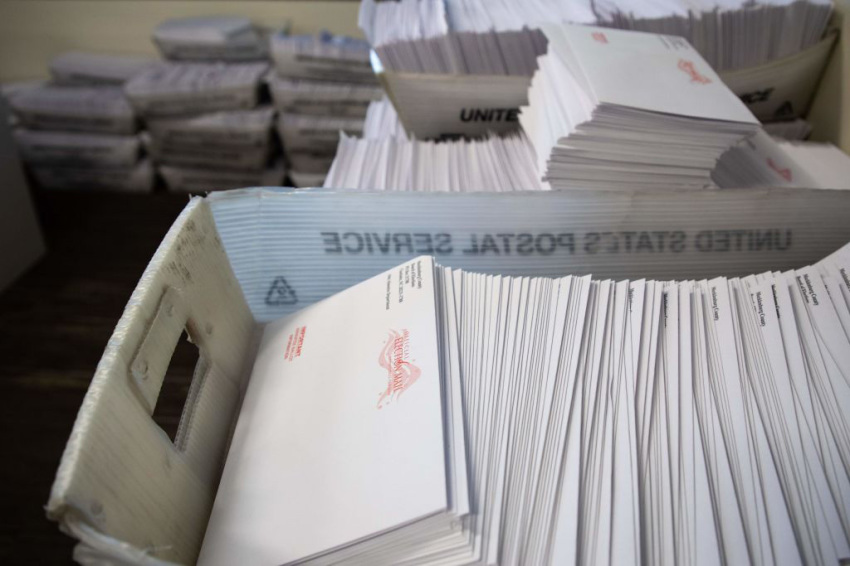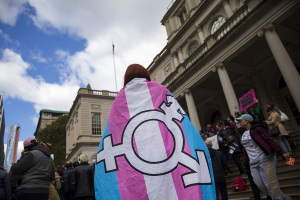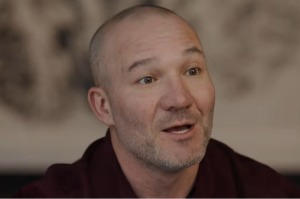HR 1 'will make it easier to cheat, easier to manipulate election results': Voter fraud expert

The United States House of Representatives passed a controversial bill last week that one election expert warns “will make it easier to cheat and easier to manipulate election results.”
The House passed H.R. 1, also known as the “For the People Act of 2021” last Wednesday on almost an entirely party-line vote. Not one Republican voted for the measure, while just one Democrat, Rep. Bennie Thompson of Mississippi, broke with his party in opposing the legislation.
Billed as a necessary measure to “expand Americans’ access to the ballot box” and “reduce the influence of big money in politics,” the sweeping legislative initiative, which stands at nearly 800 pages, has become a target of criticism from conservatives.
Hans von Spakovsky, a senior legal fellow at the Heritage Foundation, who testified before the House Judiciary Committee as it considered the Act in 2019, elaborated on the bill’s deficiencies in an interview with The Christian Post.
Describing H.R. 1 as “a federal takeover of the administration of elections, which have been run by the states,” von Spakovsky concluded that “there are parts of the bill that are unconstitutional.”
“The mandate and the prohibitions that it puts on the states, I think, are extremely dangerous, and they basically get rid of any and all of the safety and security protocols that the states have in place,” he warned.
“H.R. 1 would eviscerate state voter ID laws because it tells states they have to allow someone to vote by just simply signing a form in which he swears that he is who he says he is … which is worthless for proving identity,” von Spakovsky stressed. “On absentee ballots, it tells states they can’t enforce their witness signature requirement, which again, is just a basic security provision for absentee ballots in a state that has been in place for years.”
“All of the rules being put in will make it easier to cheat and easier to manipulate election results, and all of that will be extremely damaging to our democratic process of running our elections,” von Spakovsky added.
Citing the widespread distrust in the outcome of the two most recent presidential elections (2020 and 2016), he predicted “that kind of loss in public confidence, in the integrity of the election process, is something that will further increase if H.R. 1 is passed.”
Von Spakovsky also explained that another section of the bill “is dedicated to making changes in federal campaign rules,” which he contended will “restrict and chill First Amendment-protected political activity and political speech.” As an example, he mentioned the requirement for nonprofit organizations to “reveal who their donors are.” There is “no purpose for that disclosure other than to subject the donors of disfavored organizations to harassment and intimidation,” he added.
“I think it’s the most dangerous, reckless bill I‘ve seen introduced in Congress in my 20 years in Washington.”
Additionally, 20 state attorneys general across the U.S., all Republicans, signed a scathing letter addressed to the House and Senate leadership of both parties outlining a series of concerns and vowing to “seek legal remedies to protect the Constitution, the sovereignty of all states, our elections, and the rights of our citizens” if it becomes law.
“As introduced, the Act betrays several constitutional deficiencies and alarming mandates that, if passed, would federalize state elections and impose burdensome costs and regulations on state and local officials,” they wrote. The letter outlined the constitutional requirements for the administration of presidential elections, specifically that “States have principal—and with presidential elections, exclusive—responsibility to safeguard the manner of holding elections.”
The attorneys general also expressed concern about “the Act’s regulation of congressional elections, including by mandating mail-in voting, requiring states to accept late ballots, overriding state voter identification ('ID') laws, and mandating that states conduct redistricting through unelected commissions.”
After contending that “it is difficult to imagine a legislative proposal more threatening to election integrity and voter confidence” than the so-called For the People Act, the signatories described the “Act’s limitations on voter ID laws” as the “most egregious” provision in the legislation.
They warned that should the For the People Act become law, it would “dismantle meaningful voter ID laws by allowing a statement, as a substitute for prior-issued, document-backed identification to ‘attest to the individual’s identity and … that the individual is eligible to vote in the election.”
“Adding to the threat of increased voter fraud, the Act would mandate nationwide automatic voter registration and Election Day voter registration. Such systems would provide too many opportunities for non-citizens and others ineligible to vote, to register, and cast fraudulent ballots before officials can take preventive action. States should determine appropriate methods for voter registration based on their experiences with voter access and voter fraud.”
In addition to characterizing H.R. 1’s limits on “how states maintain voter registration rolls” as an “attack on reliable methods that states have been using to maintain voter lists without specifying any reasonable permissible alternatives,” the attorneys general concluded that the purpose of the bill “seems to be to prevent meaningful voter list maintenance altogether.”
While he lauded the effort of the multi-state coalition of attorneys general, von Spakovsky warned that the authors of the For the People Act made it deliberately difficult to challenge the law in court.
“Part of the problem with the attorneys general of the states is another provision in the law that I find unprecedented and which to me is … clearly intended to try to deny due process rights because the bill says that any lawsuit filed by those 20 attorneys general can only be filed in one federal court and that’s the federal court of the District of Columbia,” he asserted. “Not only that, it says the judges can order anyone challenging the law to be represented by only one lawyer at oral arguments and to have to file joint pleadings.”
“So in other words, they’re saying that no matter how many states sue, they may be only allowed one lawyer in court and they … can’t file potentially more than one brief in the court. … I have never seen a provision like that; it’s clearly intended … to deny due process rights and to make it hard for states or anyone else to challenge it. ... That’s what they would have to do.”
The letter was signed by the Attorneys General of Alabama, Arkansas, Florida, Georgia, Idaho, Indiana, Kentucky, Louisiana, Mississippi, Missouri, Montana, Nebraska, Ohio, Oklahoma, South Carolina, South Dakota, Tennessee, Texas, Utah and West Virginia.
Concerns about the For the People Act extend beyond the aforementioned provisions of the legislation regarding election integrity and the First Amendment. The legislation contains a provision featuring “findings related to District of Columbia Statehood,” asserting that “the 705,000 District of Columbia residents deserve voting representation in Congress and local self-government, which only statehood can provide.”
The rest of that particular provision of the bill goes on to argue for reasons why the nation’s capital should become a state before noting that Congress has the power to admit new states and reduce the size of the seat of the government to the area surrounding the Capitol, the National Mall and the White House.
H.R. 1 also calls for the creation of “a Congressional task force on voting rights of United States citizen residents of territories of the United States,” as part of an effort to grant voting rights to those living in U.S. territories such as Puerto Rico and Guam.
While the For the People Act narrowly passed the House, its future remains uncertain in the Senate, where most legislation requires 60 votes to pass. Democrats have a 50-50 majority in the upper chamber, with Vice President Kamala Harris casting the tie-breaking vote.
Under current Senate rules, Democrats would need to secure the support of 10 Republicans for the bill to pass. Democratic leadership has repeatedly promised to invoke the so-called “nuclear option” that would abolish the filibuster and enable legislation to pass with a simple majority, but last weekend Sen. Joe Manchin, D-W.Va., doubled down on his commitment to keeping the filibuster in place. The abolition of the filibuster is likely not possible without Manchin’s support.
President Joe Biden, who has put his support behind H.R. 1, signed an executive order to promote voting access on Sunday, the 56th anniversary of the tear-gassing of civil rights protesters in Selma, Alabama. Von Spakovsky described the executive order as “mostly for show,” adding, “all it does is tell federal agencies really to do everything they can to essentially help people register to vote.”
In addition to directing federal agencies to “improve and modernize Vote.gov,” “increase federal employees’ access to voting,” “analyze barriers to voting for people with disabilities,” “increase voting access for active duty military and other overseas voters” and “establish a Native American voting rights steering group,” the executive order has a provision calling on the U.S. Attorney General to “provide voting access and education to citizens in federal custody.” Von Spakovsky found this portion of the executive order “revealing.”
“So the Biden administration, apparently their chief interest is making sure that dangerous felons who are held in the federal prison system are able to register and vote as soon as they are able. … I think that would concern me a lot and should concern the American public that would be his chief focus.”



























